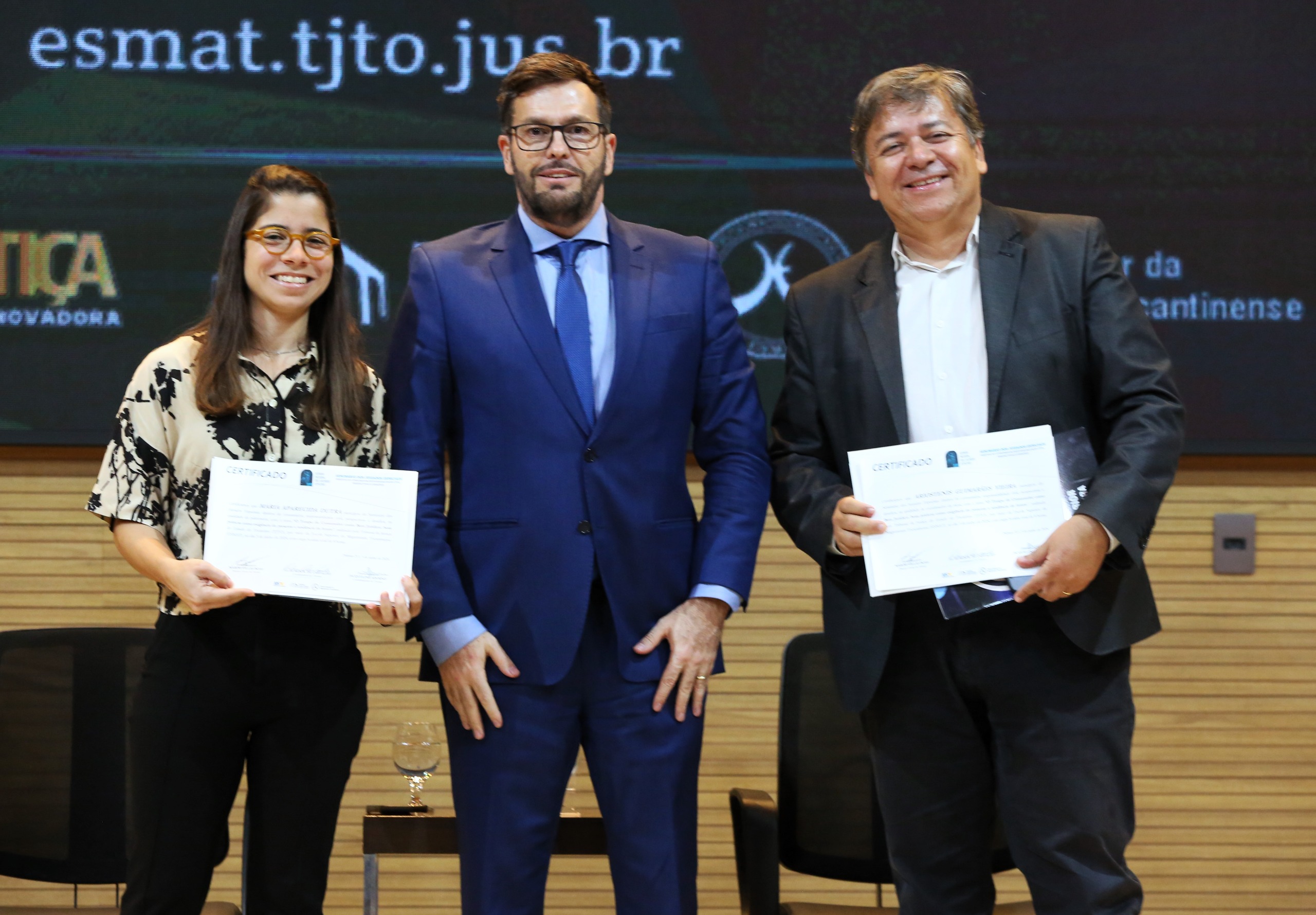
“First and foremost, time is life”. This was how lawyer Maria Aparecida Dutra opened the first lecture of the afternoon of the Seminar on Special Courts: Consumer Rights, Civil Liability, Perspectives and Challenges, on Monday (June 3rd), with the theme on “Consumer time as a legal asset: good practices as a requirement of the present and a trend for the future”. The event, held in the auditorium of the Court of Justice of the State of Tocantins, is part of the National Week of Special Courts.
Coordinating the table was assistant Judge Arióstenis Guimarães Vieira, who welcomed those present and spoke about the need for the Week of Special Courts and its purpose. “The debates that will take place here will also take place in the appeal panels, in the unified secretariat, in short, throughout society, so that we can reflect on this system and contribute to improve it in every aspect,” he said.
Maria Aparecida, a lawyer and compliance officer, at the start of the lecture stressed the importance of time in everyday life and how this should be taken into account by the Judiciary. "Everyone here has dealt with this issue in the judiciary or in your daily lives, and sometimes you let it, time as life, go unnoticed. Today we already have an unfolding, many studies and research around Brazil, also around the world, which bring much-needed reflections to our daily lives and which must also be taken into account within the judiciary,” she said.
To address the issue, the lawyer brought quotes from scholars who have developed the subject, such as Domêncio De Masi, Flávio Tartuce and Maurílio Casas Maia, as well as legal articles dealing with time in the Brazilian legislation, the legal protection of time and its scope. She also emphasized that developing good practices around the use of consumer time “aims to avoid the damage and waste of a portion of life time in stressful situations, which are predictable and avoidable in all areas.”
She also pointed out that, among the requirements for civil liability for loss of time, are the unlawful act, the behavior of the service provider; the casual link, between the unlawful act and the damage; and the occurrence of damage to time, in this case, the damage caused to the legal asset time by the failure to provide the service and the defect or vice of the product.
Civil Mark for the Internet and the Consumer Protection Code
Pablo Malheiros, who holds a doctorate in law from the Federal University of the State of Paraná (UFPR) and is a Professor at the Federal University of the State of Goiás (UFG), gave a lecture on “The objective and subjective civil liability of the internet provider in the light of the Civil Mark for the Internet and the Consumer Protection Code in the context of the case law of the Superior Court of Justice”. At the start of his speech, he stressed the importance of the Seminar.
"This kind of event is very important so that we can get out of our routine and stop to reflect a little on what we do on a daily basis. Our routine is very busy and everyone has their personal and professional affairs. And this time for you to get out and reflect on such important issues as we have seen in the seminar of today makes us grow and qualitatively improve the provision of justice in Brazil."
The professor also emphasized that there is no conflict among the judiciary, the State Prosecution, the Defender's Office and the legal profession. "Everyone is in the same boat. So if the boat sinks, everyone will sink. This is why I have argued since the approval of the new Code of Civil Procedure (CPC) that the article 4.89 of the CPC applies to Lawyers, Defenders, Attorneys, the judiciary and the State Prosecution."
Pablo Malheiros divided his talk into three parts. First, he asked why people still say civil liability and not liability for links. Then he talked about the Civil Mark for the Internet law and, finally, he spoke about how the Supreme Court of Justice (STJ) has understood this issue and how to deal with it when it comes to civil liability.
"We don't need more laws, we don't need more people. In some places, yes, but when we have better interpreters, and you will be better interpreters if you keep studying, being here at seminars of this kind, at others, doing a postgraduate course, that is, so that you can oxygenate your brain, and give better advice than you did before."




